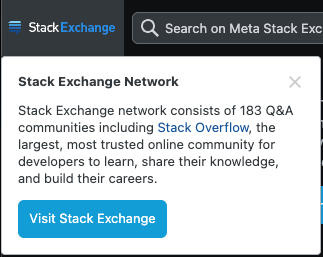Why
Site participation depends on each site's circumstances. You could look for the reasons on the per-site / child Meta. Some cases could have "escalated" to this site, Meta Stack Exchange, and some have even reached the news / external sites.
Some events that had an overall relevance on Stack Exchange are mentioned in the Wikipedia article. As of November 21, 2023 this article has two notices. One general notice suggested splitting the article. Another on the section "Declining relationship between users and company" with the following text (links are not included):
This section may contain improper references to user-generated content. Please help improve it by removing references to unreliable sources, where they are used inappropriately. (March 2022) (template removal help)
What
The elemental activity, referred to as participation, on a Stack Exchange site is done by posting questions and answers. Other actions like edits will "bump" posts to the Homepage but there are some rules.
IMO, the most critical participation is moderation, not by people with "super powers" but by the site's users based on the Reputation System. Many things will not be shown on a site's Homepage. Many of them are more important than questions and answers, those things that foster a sense of community and engage users and make users commit and have a feeling of "ownership". Those things motivate them to moderate and curate their site.
Besides activity on the main site, there are other places to look at: the Tour, Help Center, the per-site / child Meta, the site chat, aka, "The Third Place™," and the off-site places where the users do other things than posting questions and answers according to the Stack Overflow Q&A model.
Where
As of November 22, 2023, the Stack Exchange button on the toolbar of this page, says that there are "183 Q&A communities".
Stack Exchange Network Stack Exchange network consists of 183 Q&A communities including Stack Overflow, the largest, most trusted online community for developers to learn, share their knowledge, and build their careers.
The term "community" refers to "online community" as a synonym of "virtual community". As an aspirational goal, it intended to achieve the sense community, as the Malcolm Baldrige Excellence Award for Communities and other organizations in favor of human well-being promotes.
Site
Looking at the output of the Stack Exchange platform, we find sites. Site participation depends on each site's circumstances.
While a site's Homepage might give some sense of site participation, looking at the Users page might be more helpful. This page has the following views.
- Reputation
- New users
- Voters
- Editors
- Moderators
Several views have filters to show users by week, month, quarter, year and all.
Meta
Per-site / child Metas has its own Users page, with a slight difference. Instead of a Reputation view, they have a Participation view.
You might use Data Explorer to make a more profound analysis based on data.
Chat
Besides Site and Meta there is Chat.
Community
Nowadays, to propose a new site, it's required that a community already exists before creating the site proposal. Also, due to the limitations of what could be done on Stack Exchange and Digital Services, it's not strange that people look to create meaningful relationships, grow as human beings, and spare their time in other places.
When
Below is a summary of some of the most relevant events without including those that might be controversial. They are documented in the Wikipedia article linked above.
Stack Overflow was launched in 2008. Later, other sites followed using the same Q&A model/platform. Stack Exchange, later referred to as 1.0, was established.
Server Fault, Super User, the first Meta, and MathOverflow, among others, were launched during this stage.
A new site proposal process was deployed in 2010. For this, the Area 51 site was launched. Stack Exchange 2.0 was established. There was a rule that sites should be "healthy" otherwise, they would be closed.
A bit later, Jeff Attwood, one of the founders, left the company.
At some point later, very significant rules were made. Sites were no longer required to be "healthy" to continue working. Also, it was required for Area 51 new site proposals to be created only when there was already a "community" ready to support them.
Stack Exchange, Inc. was sold. Nowadays, it's owned by Prosus.

